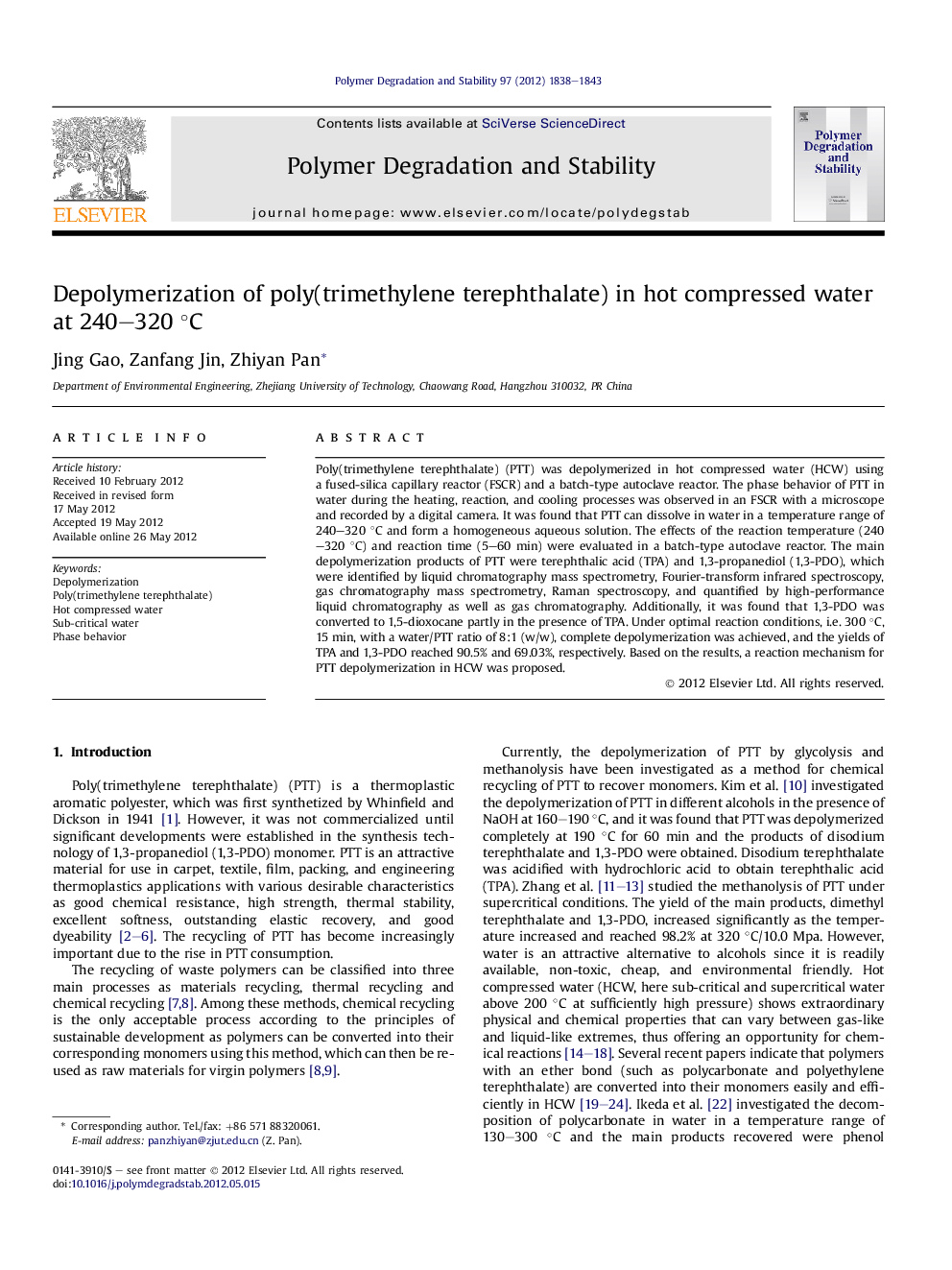| Article ID | Journal | Published Year | Pages | File Type |
|---|---|---|---|---|
| 5202757 | Polymer Degradation and Stability | 2012 | 6 Pages |
Abstract
Poly(trimethylene terephthalate) (PTT) was depolymerized in hot compressed water (HCW) using a fused-silica capillary reactor (FSCR) and a batch-type autoclave reactor. The phase behavior of PTT in water during the heating, reaction, and cooling processes was observed in an FSCR with a microscope and recorded by a digital camera. It was found that PTT can dissolve in water in a temperature range of 240-320 °C and form a homogeneous aqueous solution. The effects of the reaction temperature (240-320 °C) and reaction time (5-60 min) were evaluated in a batch-type autoclave reactor. The main depolymerization products of PTT were terephthalic acid (TPA) and 1,3-propanediol (1,3-PDO), which were identiï¬ed by liquid chromatography mass spectrometry, Fourier-transform infrared spectroscopy, gas chromatography mass spectrometry, Raman spectroscopy, and quantiï¬ed by high-performance liquid chromatography as well as gas chromatography. Additionally, it was found that 1,3-PDO was converted to 1,5-dioxocane partly in the presence of TPA. Under optimal reaction conditions, i.e. 300 °C, 15 min, with a water/PTT ratio of 8:1 (w/w), complete depolymerization was achieved, and the yields of TPA and 1,3-PDO reached 90.5% and 69.03%, respectively. Based on the results, a reaction mechanism for PTT depolymerization in HCW was proposed.
Keywords
Related Topics
Physical Sciences and Engineering
Chemistry
Organic Chemistry
Authors
Jing Gao, Zanfang Jin, Zhiyan Pan,
